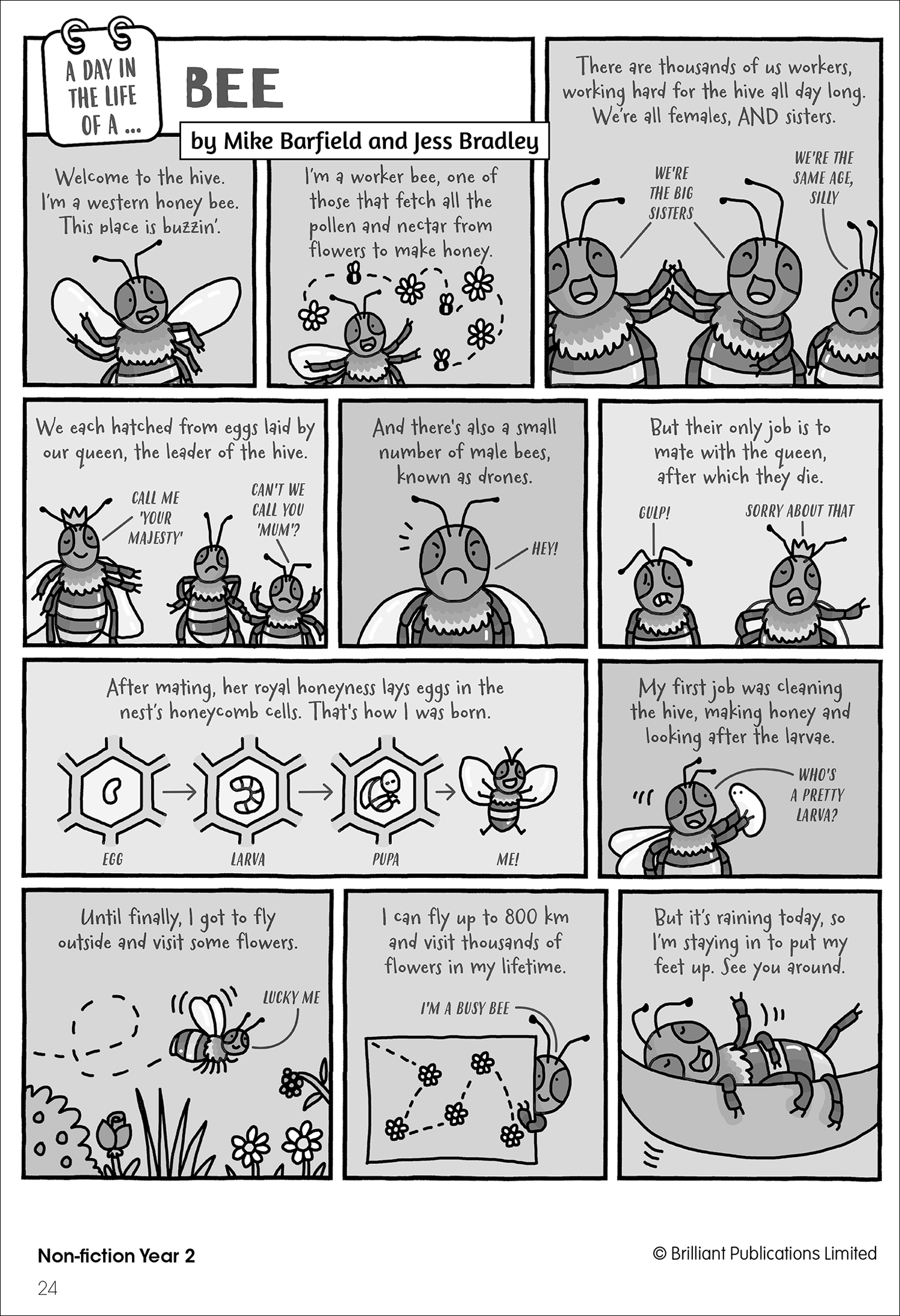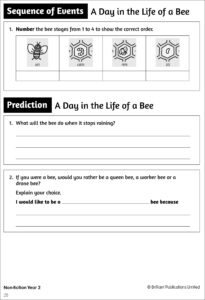Reading non-fiction is as important as reading fiction

How can we grab and keep a young reader’s interest?
There is something rather special about non-fiction literature.
Non-fiction texts are just as able to grab and keep a young reader’s interest as works of fiction.
As a source of information, non-fiction texts can be short passages and complete in themselves. Children will not feel the need to go on reading more and more.
In using non-fiction, children can learn interesting facts about the world in which they live and develop reading skills in a most productive way while at the same time improving their literacy skills.
Developing Reading Comprehension Skills, Year 2: Non-fiction contains 22 high quality, authentic non-fiction passages, which will inspire children and help them to see that reading has a purpose.
Each of the texts is accompanied by carefully chosen questions to help pupils develop an understanding of all the Key Stage 1 question types: retrieval, inference, vocabulary, sequencing and prediction.
The book is ideal to develop the skills needed to read and comprehend non-fiction in Key Stage 1 and ensure a smooth transition to Year 3.

Learn more about Developing Reading Comprehension Skills, Year 2: Non-fiction
Explore the extract for ‘A Day in the Life of a Bee’ and answer some questions
